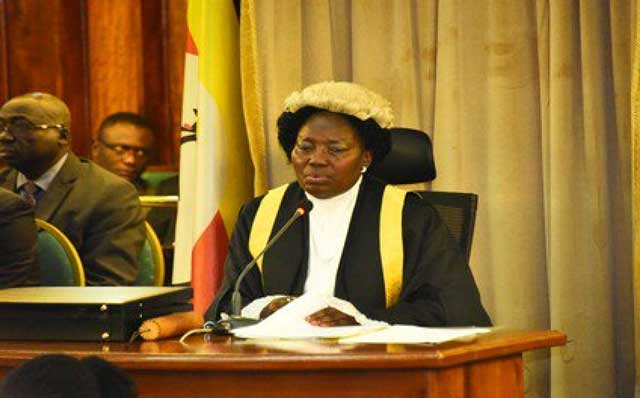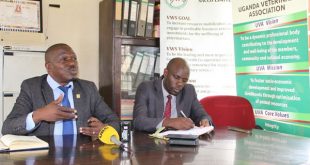
Kampala, Uganda | THE INDEPENDENT | Parliament has rejected a government proposal seeking to reinstate the six per cent withholding tax on payments for agricultural supplies. The supplies were in 2019 exempted from the six per cent withholding tax after observing a practical challenge with a one per cent tax introduced on payments for agricultural supplies in 2018.
But the government had instead reintroduced the tax, this time even raising it to six per cent, However, Finance Committee Chairperson Henry Musasizi told parliament that the six per cent withholding tax is even higher than the earlier one per cent which could not be implemented in 2018.
He said that the proposed tax would pose challenges in implementation since farmers would prefer to sell to non-designated agent and where they have to sell to the designated agent, the farmers are likely to increase the prices to cater to the six per cent Withholding Tax.
He recommended that the current exemption should be maintained until a clear, equitable and practical mechanism is developed to tax the Small and Medium-sized Enterprises (SMEs) in the agriculture sector.
The committee position was overwhelmingly supported by Members of Parliament. Kumi Woman MP Monica Amoding said that the re-introduction of the tax would be a disservice to the economy of Uganda since the Agriculture sector will be key in helping Uganda’s economy recover from the current coronavirus crisis.
Meanwhile, Parliament resolved that a taxpayer who provides a passenger transport service or a freight transport service should obtain a tax clearance certificate from the Commissioner before the renewal of the operational licenses.
The MPs said that this will enhance revenue by improving compliance among transport operators who are doing business and avoiding tax on their income.
Introduction of a new tax regime for small businesses
Members of Parliament also approved the introduction of a new computation of tax for small businesses intended to provide a simplified tax regime for small businesses to enhance equity and improve tax compliance. They say this will encourage small and medium-term enterprises to formalize their businesses since enterprises that keep records will bear relatively lower tax burden compared to those without records.
However, Musasizi noted that the consistent increase in prices and inflation for the last 12-years citing a need to comprehensively review the PAYE tax rates to help low-income earners have more disposable income.
“For the lowest-paid workers who earn an average of 250,000 Shillings, the cost of living has become unmanageable if one considers the cost of rent, food and other basic necessities. There is a need to increase the purchasing power of low-income earners and hence more revenue in the form of indirect taxes,” he said.
Kasilo County MP Elijah Okupa also backed Musasizi’s argument on the purchasing power of low-income earners.
Exemptions
Parliament exempted theincome of the Deposit Protection Fund from income tax. The Deposit Protection Fund is a statutory body created under the Financial Institutions Act, 2016 to provide insurance for the deposits for depositors in case of closure of a regulated financial institution.
But MPs rejected the exemption of the business income of education institutions despite the justification from the Finance Committee Chairperson Musasizi that it was to enable them to have their generated returns re-invested in the sector.
“Education is one of the social services that government must provide to its citizens; however, there are budgetary limitations in this area and an ever-increasing number of citizens requiring this service. There is, therefore, need to allow private educational institutions to grow and supplement the few government institutions,” said Musasizi.
But Budadiri West MP Nathan Nandala Mafabi opposed the exemption of Education institutions saying that they needed more time to interface with the petitioners to understand their intentions and justifications as well other stakeholders like the Uganda Revenue Authority (URA) and the Ministry of Education.
Nandala also noted that there were other investors that are also providing social services such as medical services and are paying taxes. He observed a need The Ministry of Finance to carry out a thorough study of the impact of the proposal before it is passed into law.
But Kalungu East MP Joseph Sewungu objected to Nandala’s position saying that educational institutions do not make profits and need to be considered for an exemption.
The Minister of State for Energy Sarah Opendi said that parliament should interest its self in the leakages in the Education Sector saying that majority of people who operate schools are there for income and profits.
The Minister of State for Finance Gabriel Aljedra also objected to the exemption of Education Institutions saying that government cannot afford to lose the revenue tabling evidence about profit being made by different schools. Speaker Rebecca Kadaga said that the proposal should be excluded for further study.
**********
URN
 The Independent Uganda: You get the Truth we Pay the Price
The Independent Uganda: You get the Truth we Pay the Price


